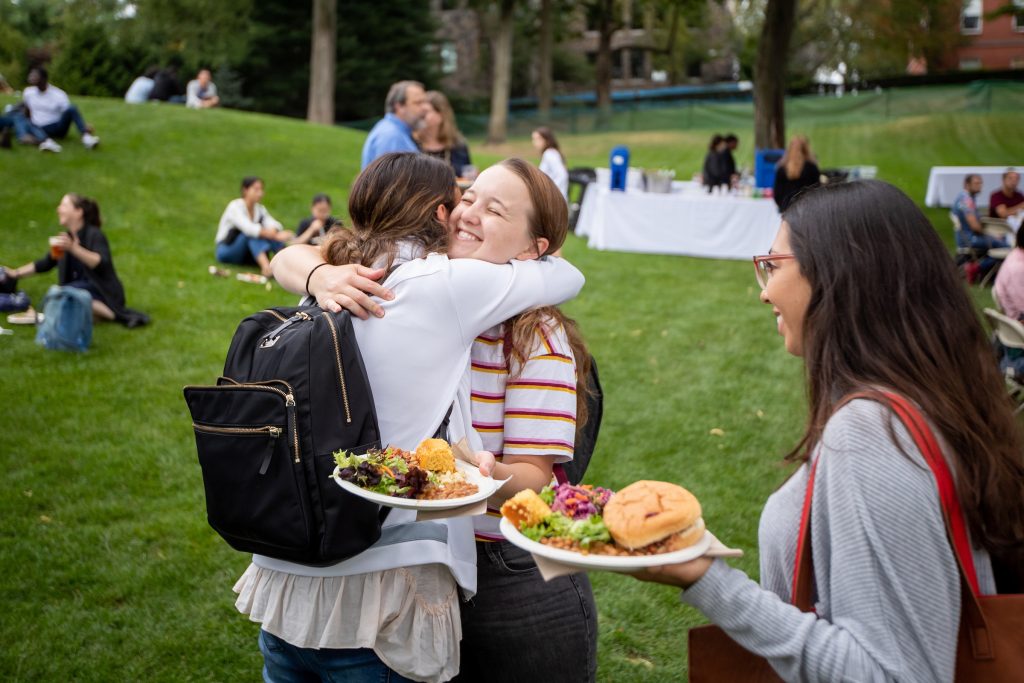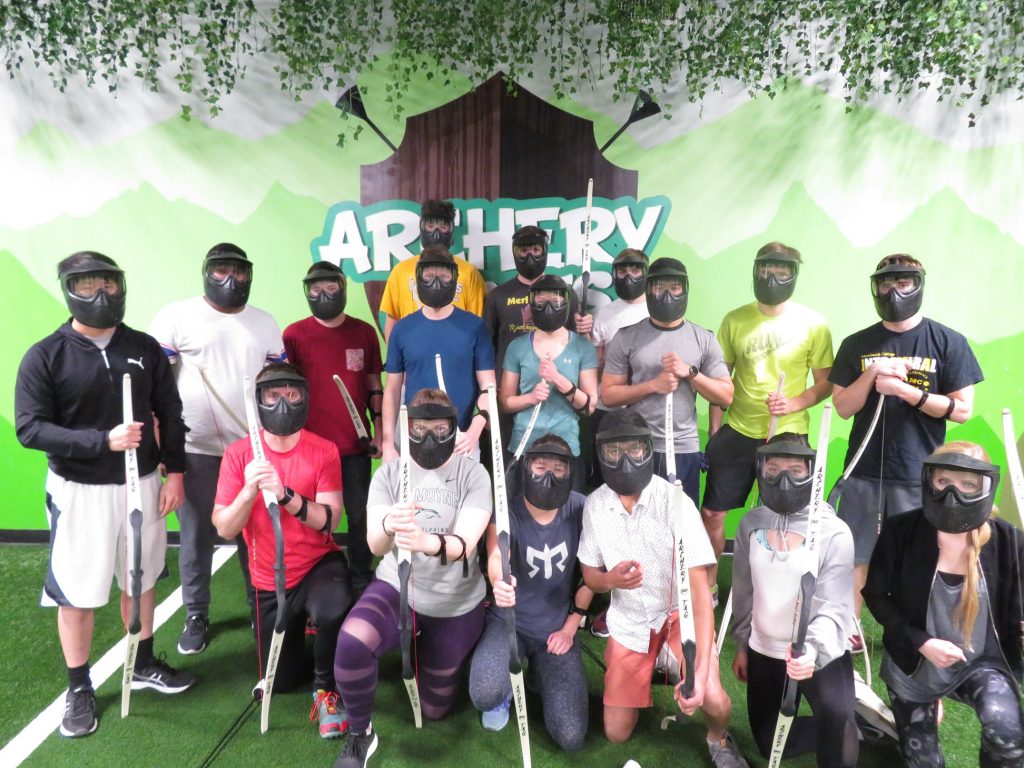from an international student’s perspective

Written by Ebru Ece Gulsan, Ph.D. student in Chemical Engineering
Congratulations! You made it!
You are moving to the Boston area and are possibly even coming from the other side of the world.
Your parents are proud, friends are jealous.
As time goes by, maybe they start to be more bittersweet. They think you are too busy living the dream life to FaceTime with them as often as you used to, but they have no idea how difficult it is to wake up at 5 am to make sure you call them at a reasonable time since there is a 10 hour time difference. You sound “annoying” or “displeased” when you complain about the tremendous amount of grad school work-load because your loved ones think you do not appreciate your opportunities enough. It looks so easy when you see the third-year international students, because they all seem settled down and have already built their communities. They are all incredibly fluent in English while you still take your time to construct your sentences in the most grammatically perfect way not to be judged by native speakers, and sometimes give up on speaking up because you are exhausted of overthinking.
I get it.
I moved to Boston from a country where America is only known for its fast food, huge cars, and “drive thrus.” Maybe also for TV ads of prescribed medications (like seriously?).
Even though I traveled abroad a bunch, lived in different countries and went to an English medium university, it took me a long time to feel comfortable with my new first language. I still remember the first time I landed at Boston Logan Airport and not understanding a word the security guy said to me. I was freaking out about writing a scientific article or a textbook chapter in English. The first research group meeting I attended was a nightmare – leaving aside the scientific content of the discussions, I could barely understand the language that they spoke. There is a difference between “native speakers who speak English” and “internationals who speak English.”
Language shock is not even the first challenge you face when you move in from another country. Yes, we live in a more global age and all of us are exposed to other cultures and understandings, but this does not necessarily mean that we will immediately adjust and things will go smoothly. There are so many small cultural differences and nuances, such as different gender roles, work ethics, and gestures that are not visible at first. You will learn how to write e-mails, how to flirt, or what to say someone who has lost a significant other in another language. Health insurance, contracts, financial agreements, leases; all these small things work differently, and now you have to read everything before pressing “I agree to the terms and conditions.” It is like learning how to walk again, although you thought you had expertise in it. On top of all these challenges, there is also the time you realize you came to this country all by yourself and you have to make friends and build your own community to survive.
The first big step to take is to accept the fact that you will need to put in effort. You probably will not find yourself in your perfect friend group spontaneously without making the first move. Luckily, Boston is such a diverse and international city. It is easy to blend in. It might feel strange or new to hang out with people with different backgrounds at the beginning, but Bostonians have been doing this for such a long time. Plus, you speak their language! This makes a huge difference because if you were to move in another country where the first language is not English, it would be much more difficult to befriend locals. Despite the fact that they can speak English if they want to, people will hardly give up on the comfort of speaking their first language to have you around. Are you not confident about your accent? Well, think about it as an ice breaker because you will notice that the question “where is your accent is coming from?” is a classic pickup line. So, own it!
There is a metaphor I really like: it is called “Peach People vs Coconut People.” You can look it up for more details, but briefly, it defines certain people as “peach people” and others as “coconut people”. Peach people are easy to approach, love small talk, yet they still have the core that they will only share with their core group of friends or significant others (this does not mean that you will never be a part of it). Coconut people are the opposite, with an annoyed resting face; but once you get to know them, they are ready to tell you about their aunt’s new boyfriend or why they chose a particular medicine. Just remember that people will be different, and keep this in mind to understand different reactions when approaching others and getting to know them.
Obviously, it is easier to connect with other expats. You will receive plenty of e-mails from Tufts International Center about upcoming events – attend them. If you want to bond with people from your country, find their communities and show up at their gatherings. But please remember that balance is the key. Keep your conversations and friend groups diverse. Of course you will feel homesick and will need your own people, but try not to call home every time you find yourself in this situation. Actually, you know what? You will soon realize that you see home in a different light. It will take time, but once you get there home will not be “where your heart is,” but instead might be where you can connect to the VPN.
Last but not least, know what you like to do and keep doing more of it. Pursue your hobbies and find others who share the similar interests. If you like scuba diving, become a member of New England Divers. If you enjoy photography, go take a course about it and meet others who enjoy it too. Do you need people to hike together? Just invite them and get to know each other during the hike while there is no distraction except the nature.

Do not forget that flux has no season in a diverse and international city like Boston. People come and go all the time. They all feel like a fish out of water at the beginning. Everybody needs friends and there is not a “more normal” thing than the desire of being a part of a community. Just be yourself, show up and bring your beautiful unique accent and slightly broken English with you wherever you go!


